
 > Life&Style > Travel
> Life&Style > Travel
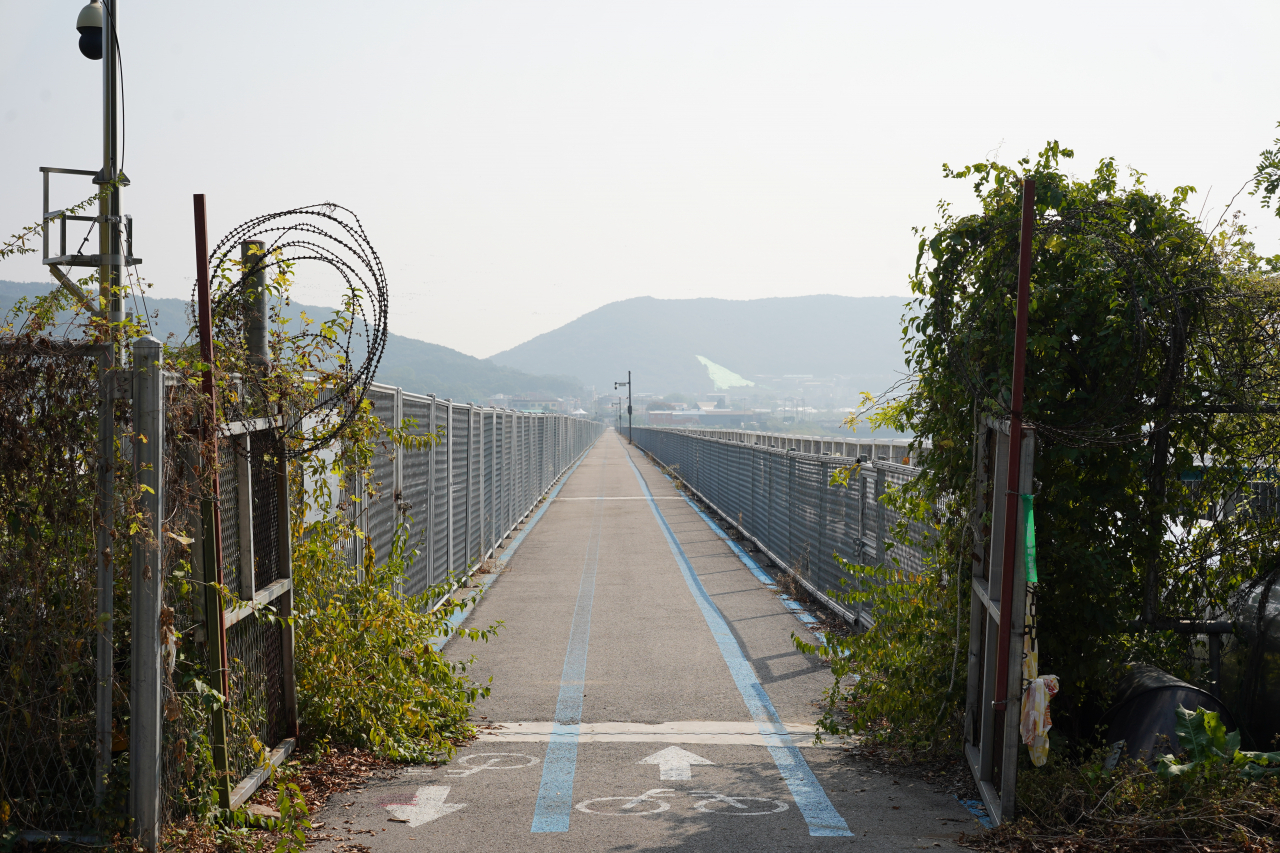 |
| Old Ganghwa Bridge, a bridge connecting Ganghwa and Gimpo, is the first checkpoint of DMZ Peace Trail Course 1. (Lee Si-jin/The Korea Herald) |
With its last course -- an 11.4-kilometer trail connecting Unification Security Park in Goseong, Gangwon Province and Goseong Unification Observatory in Goseong, Gangwon Province – having opened Sept. 23, the entire 4,500-kilometer-long Korea Dulle Trail that traces the perimeters of South Korea along the eastern, southern, western coasts and the border area of the Demilitarized Zone in the north is now open.
The trail is a great way to discover and experience the country with your feet firmly on the ground. Construction of the ambitious project to allow hikers to walk literally around the country began in 2009.
While Haeparang Trail along the east coast, Namparang Trail along the southern coastline and Seohaerang Trail along the west coast opened in 2016, 2020 and 2022, respectively, the DMZ Peace Trail was completed this year.
While these walking trails share some similarities, including panoramic coastal views and the absence of high-rise buildings, each trail offers experiences and sights that are different.
A wealth of information about the different courses is available at the Korea Dulle Trail’s official website and its exclusive Durunubi app, but nothing beats actually walking the walk.
DMZ Peace Trail Course 1
For those who do not know how difficult the walking trail is or have no idea which course to choose among the total 284 courses, DMZ Peace Trail Course 1 is a great choice.
This first course, which allows travelers to begin their journey at DMZ Peace Trail Shelter on Incheon’s Ganghwado, an island off the west coast, offers a glimpse of South Korea's history and the reality of the two Koreas.
After checking the map and DMZ Peace Trail signs at the shelter, head over to the Old Ganghwa Bridge, a road that used to connect the island to Gimpo. It is a car-free bridge, where only pedestrians and bikes are allowed.
With dark brown-colored guideposts and green ribbons, even novice hikers will not have difficulties following the right path.
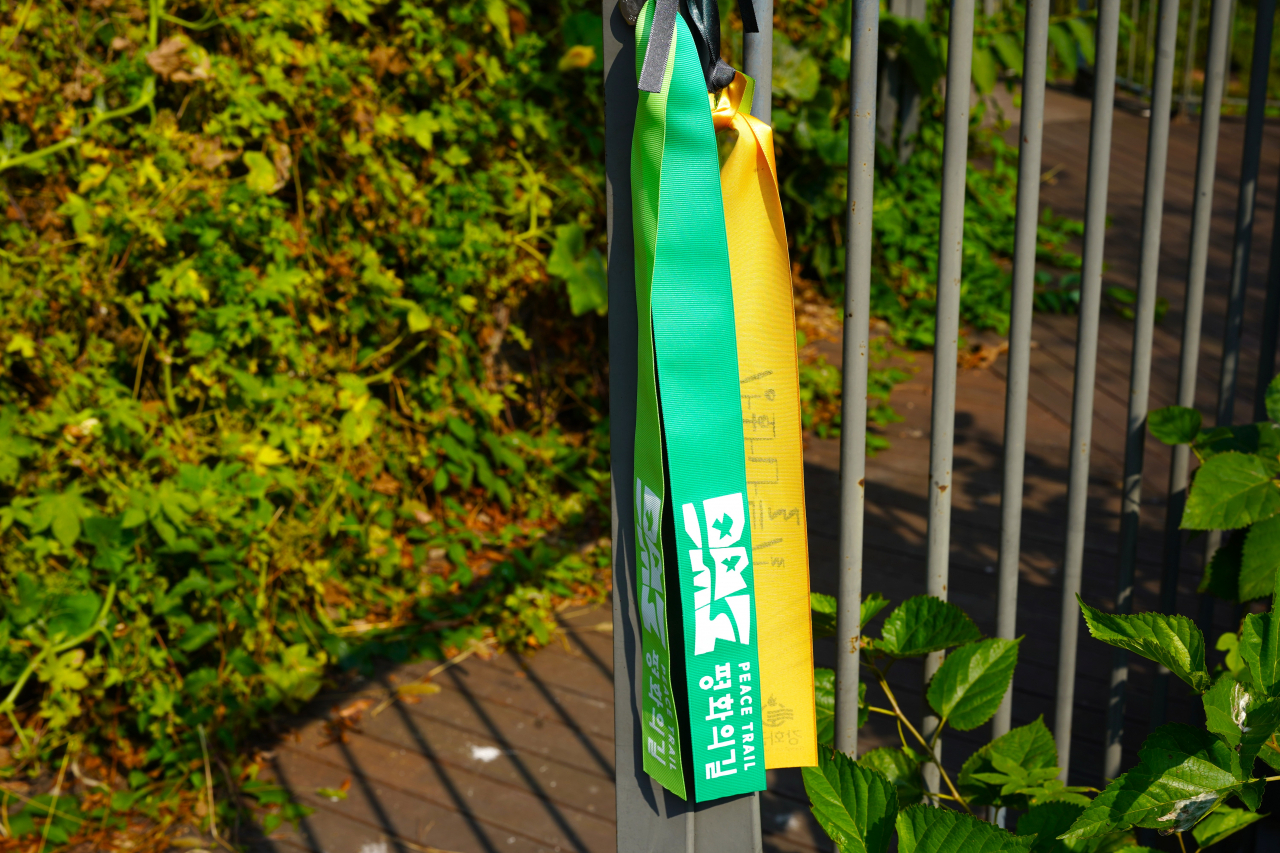 |
| Green ribbons mark the DMZ Peace Trail courses. (Lee Si-jin/The Korea Herald) |
Following the road along the Ganghwa River, you will notice that trees are soon replaced with fences and barbed wire, creating a vibe not often felt at popular travel spots.
Another sight you might overlook when traveling by car is 6.25 Veterans Memorial Park.
It may be small in size, but Ganghwa County turned one of the old guard posts into an outdoor photo museum, where visitors can learn about the history of the Korean War and pay tribute to Korean War veterans.
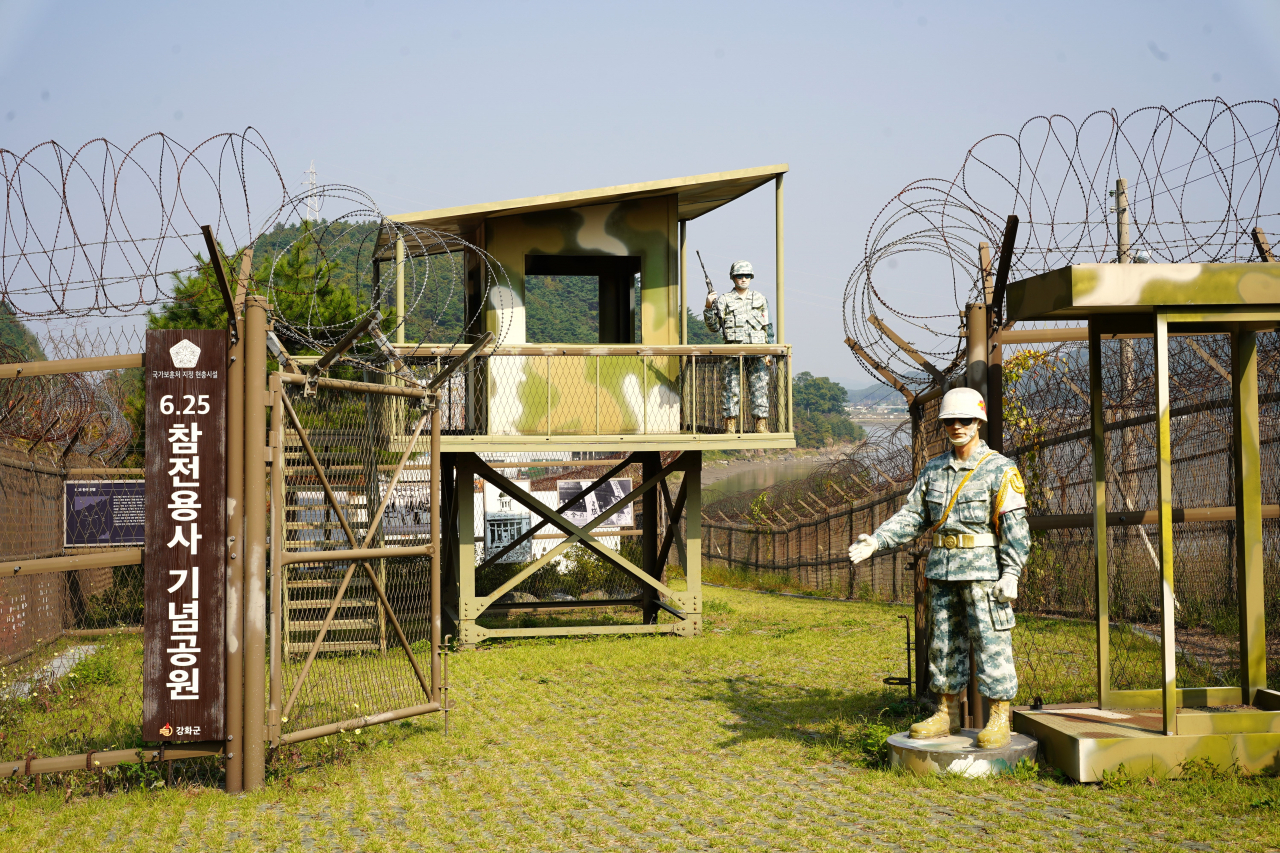 |
| Soldier mannequins stand at the entrance of 6.25 Veterans Memorial Park in Ganghwa-gun, Incheon. (Lee Si-jin/The Korea Herald) |
At 6.25 Veterans Memorial Park, a list of countries that sent their troops to fight alongside South Korean soldiers recognizes the soldiers' sacrifices.
Make sure to stay hydrated while exploring the first course of the DMZ Peace Trail, as many areas do not have any trees or shade.
Stop by one of the "eight scenic spots" of Ganghwa at the pavilion called Yeonmijeong, where you can sit on a bench and enjoy the cool autumn breeze while taking in the scenic river view.
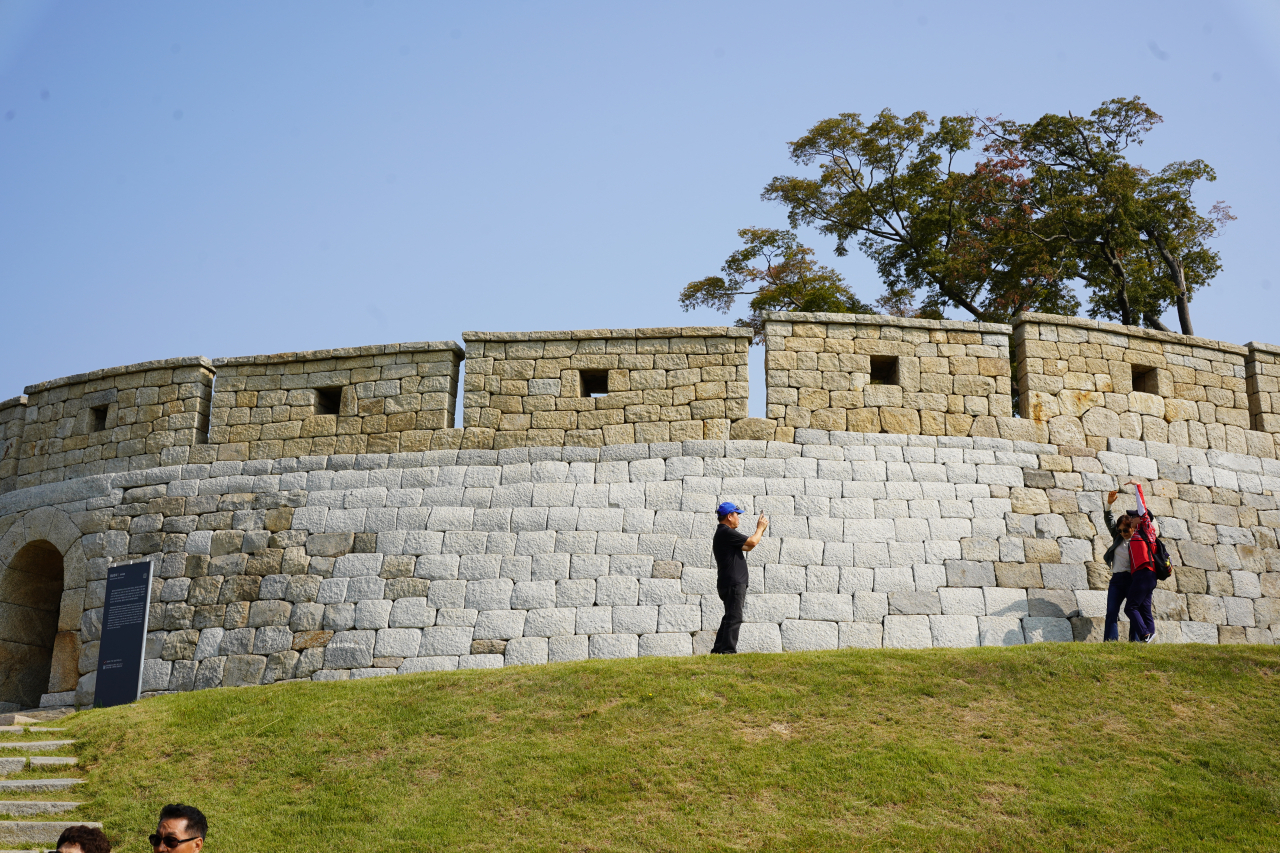 |
| People take photos before heading to the pavilion, Yeonmijeong, in Ganghwa-gun, Incheon. (Lee Si-jin/The Korea Herald) |
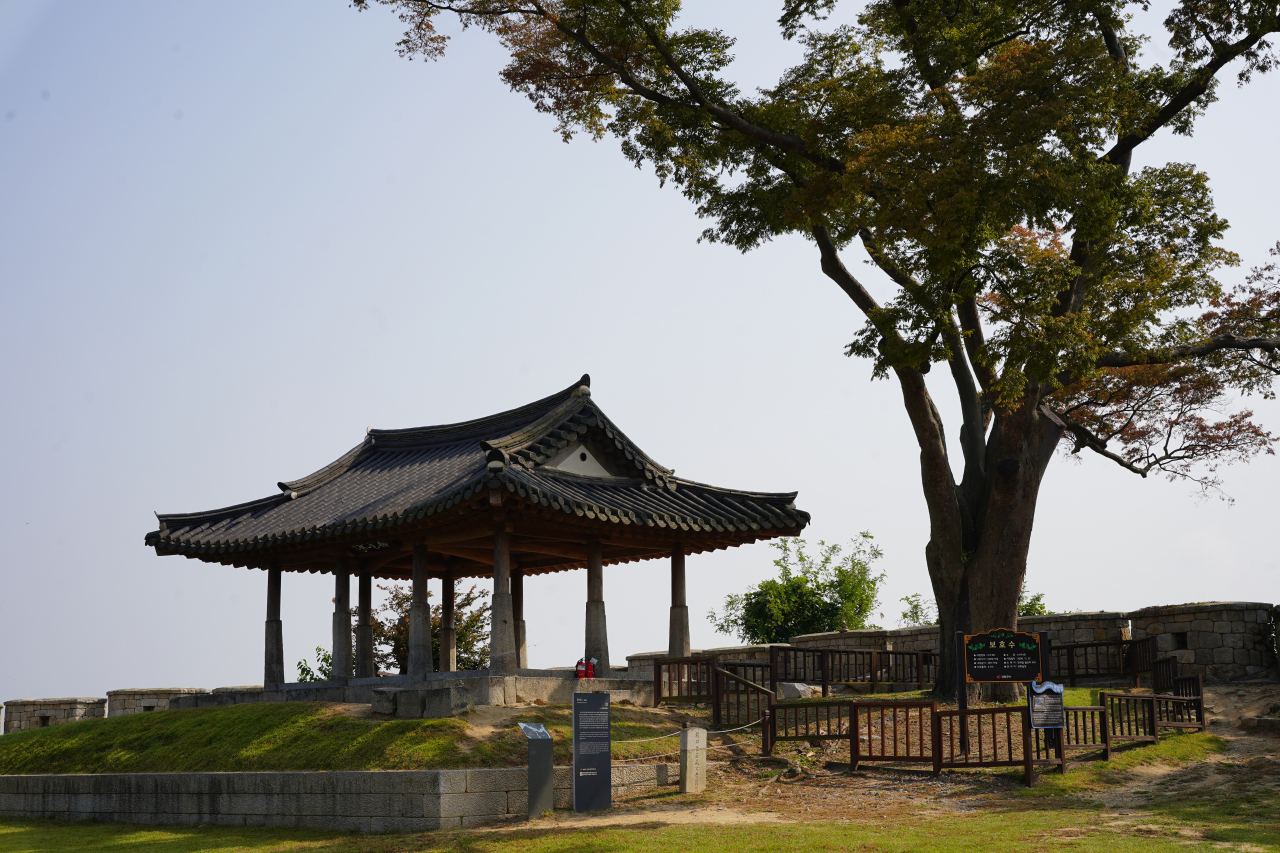 |
| Yeonmijeong (Lee Si-jin/The Korea Herald) |
Before heading to Ganghwa Peace Observatory, all visitors are required to show their IDs and receive a pass at the guard post as the observatory area is guarded by the Republic of Korea Marine Corps.
Ganghwa Peace Observatory is one of the areas closest to North Korea, a mere 2.3 kilometers away from Gaepung-guyeok in North Korea, from where you can view North Korea from the South.
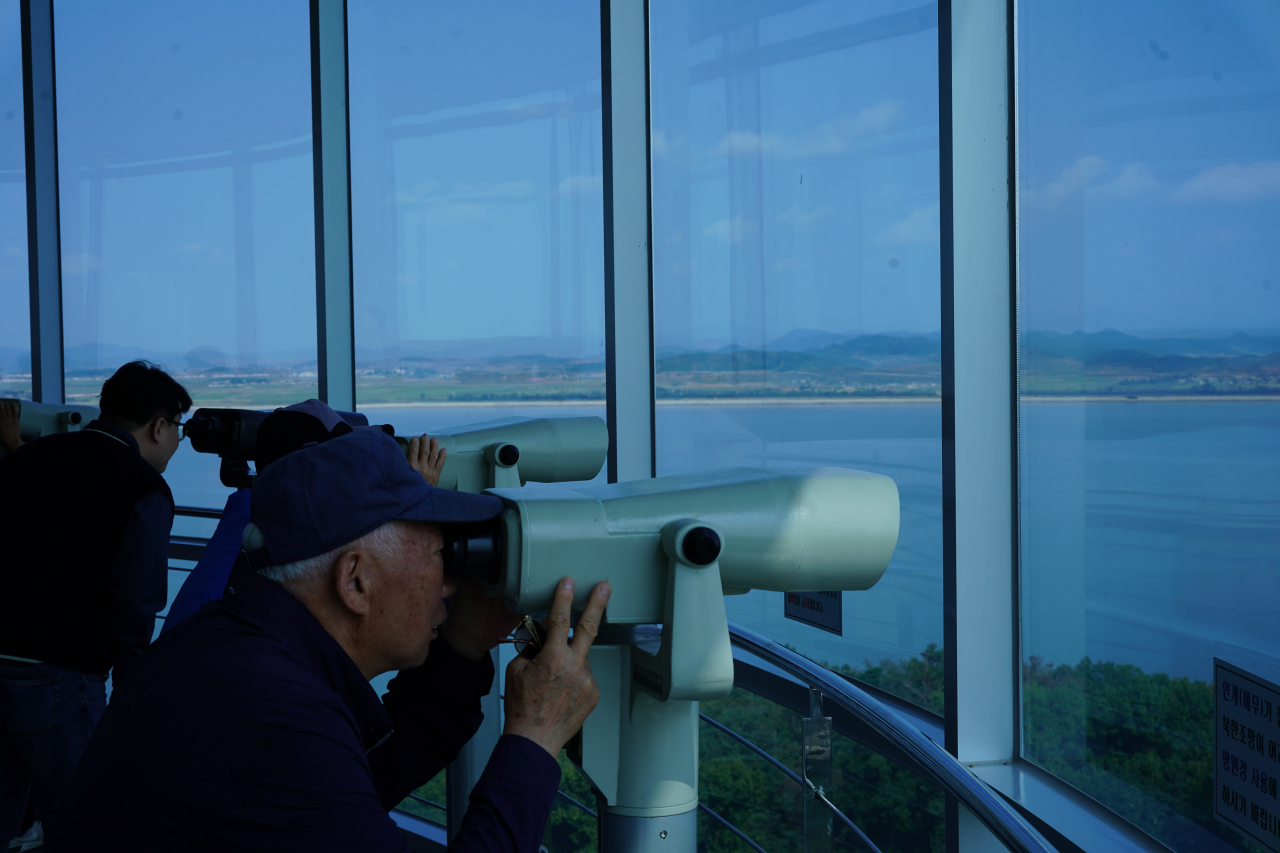 |
| Visitors view North Korea through lenses at Ganghwa Peace Observatory in Ganghwa-gun, Incheon, Oct. 11. (Lee Si-jin/The Korea Herald) |
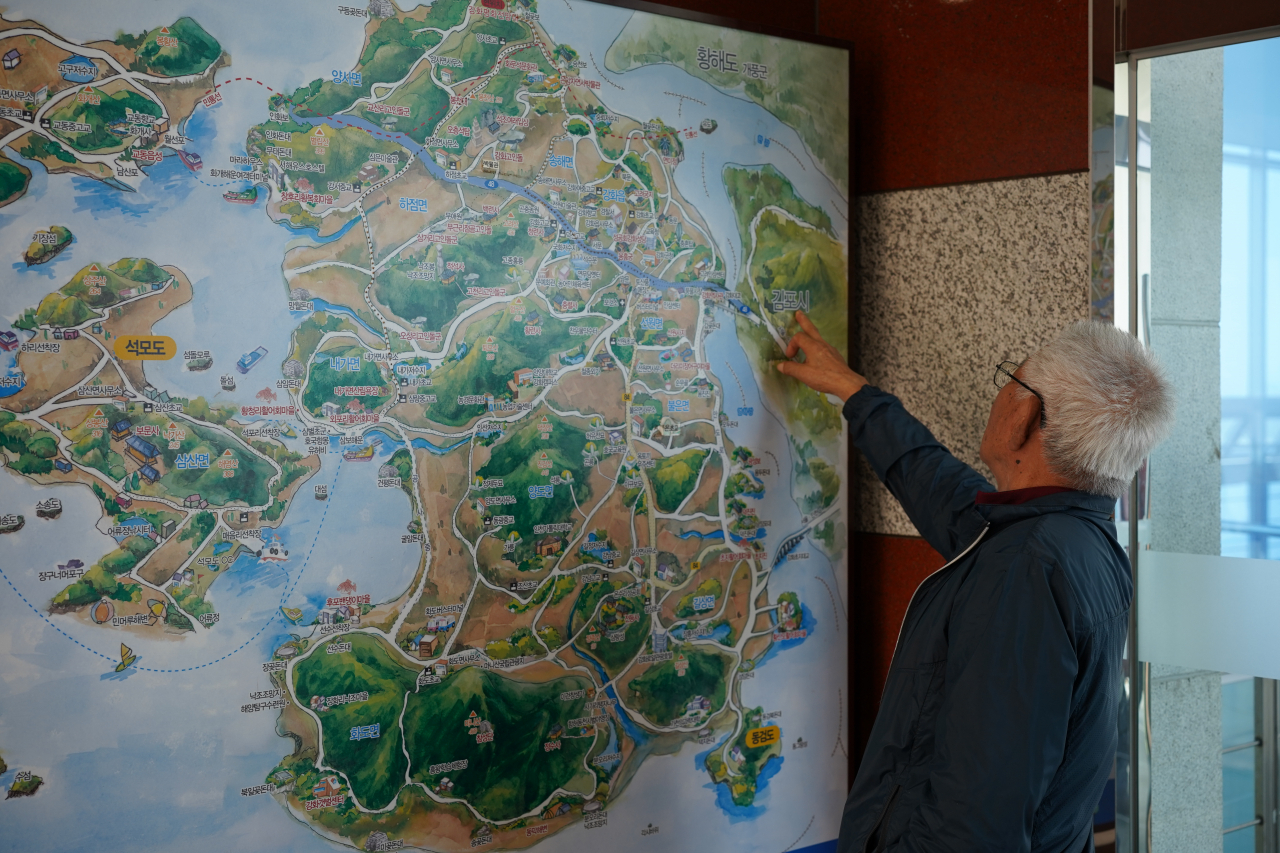 |
| A local bus tour participant locates Ganghwa Peace Observatory on a map. (Lee Si-jin/The Korea Herald) |
“On a clear day, visitors can see North Korean farmers plowing the fields with cows and go about doing their work,” an observatory official told The Korea Herald.
Many separated families frequently come to the observatory, wishing their families back in North Korea are alive and healthy.
“There are many telescopes at the observatory, but my eyesight is getting worse every year. I can’t really see the land beyond that river,” said Park Gwang-ho, 78, a bus tour participant.
“It is unfortunate that we are separated. I feel sad when I see people who come to the observatory to perform ancestral rites because their hometowns are in North Korea,” Park added.
While the DMZ Peace Trail is a walking trail, bus tours and other forms of road trips are allowed. However, trash-carrying balloons sent across the border by North Korea have made the Marine Corps and travel agencies more cautious about border area tourism.
“We operate a stamp tour and a trekking program in areas close to the Civilian Control Zone. But, they have all been temporarily suspended due to the heightened tensions with North Korea," a DMZ Peace Trail Shelter official told The Korea Herald.
The trail is managed by the Culture Ministry, Korea Tourism Organization and Ganghwa-gun, but the northern part of the island is under the Marine Corps' authority and protection.
“Make sure to double-check with the guide at a Ganghwa-based tourist center before making your visit to the county, because access to the Ganghwa Peace Observatory might be blocked per the Marine Corps' judgment,” the official explained.








